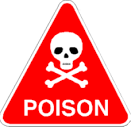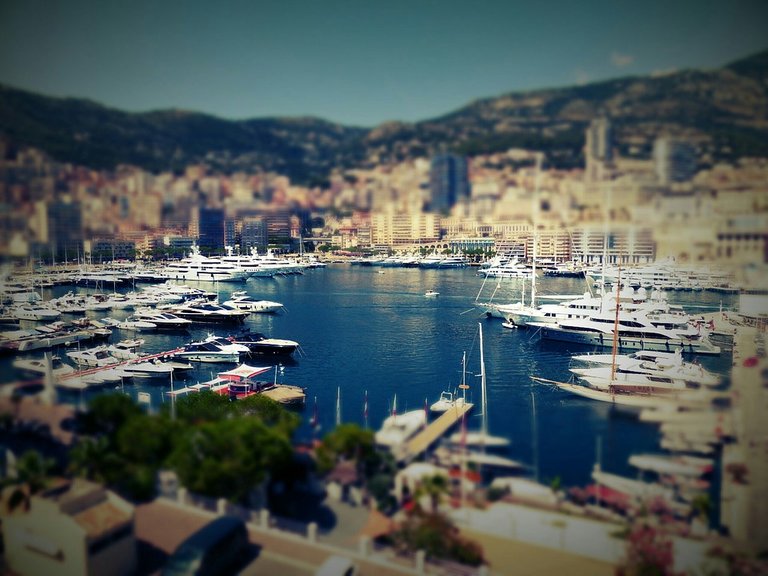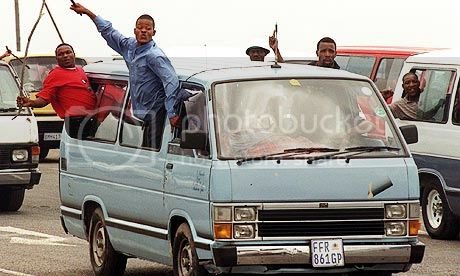South Africa is a country of anger.
Pre and post 1994, the watershed in South African history as it was the first democratic election.
It is a rage of loss of previously assumed “rights or benefits”. It is a rage of entitlement promised but not delivered.
Outwardly it is manifest in symptoms such as road rage, family murders and despair. We are a society that is victimised by the biased reporting of media. Sympathy and empathy are often missing, particularly for those with whom we do not identify. Anger is a downward spiral of ever increasing intensity. Political parties feed off it and ignite it. I am no social scientist and can only speak from my own perspective and observations. Comments are generalisations and cannot be applied completely; the exception often only goes to prove the rule. Often, I believe, stereotypes exist for a reason but blanket use often allows the intellectually lazy to apply them without thought, often unjustly condemning others.
Yet there are many who do not allow themselves to be sucked into the morass of hatred.
How? Why? South Africa is a society of strong contrasts in the very people themselves; some are humorous and quite relaxed, others extremely aggressive and highly . There also seems to be a geographical component; those at the coast seem to be calmer and those in Gauteng (Johannesburg/Pretoria) seems to be more tense. Whites seem more tense, Blacks seem more laid back. Folks in rural areas calmer than their urban counterparts.
A problem in modern society seems to be equating an individual’s worth with their ability to acquire financial rewards for their “contribution” to society. Society is based on consumerism, the more you earn, the more you can acquire. One’s earning capacity is often reflected in the type of car you drive and the kind of suburb you live in. If one’s opportunities are restricted unfairly, anger and depression are poisons that fester in the hearts of people. Even in post – Apartheid South Africa these ills prevail in the form of poorly administered attempts to correct historical imbalances in policies such as “affirmative action”, “demographic equity”, “employment equity” and others.
Many aspirations of the youth are currently based on the old English system, from when South Africa was still a British colony.
The “white collar employee” (probably with a university degree) definitely ranks above the “blue collar worker” (the tradesman or unskilled labourer), further this economic divide had/has racial application as well. So in South Africa the aspiration of the young masses is to obtain a tertiary education for the prestige and employment opportunities. This is bad for South Africa, to be stuck with that model from England. Too bad we did not use the German or Japanese systems, where the white collar and the blue collar are treated with mutual respect. University costs in South Africa are extremely high when compared to the average income of the average White citizen, let alone the average Black wage earner. The vast majority of the youth want a degree but lack resources. Currently there is a great deal of civil unrest among the youth and lots of demonstrations demanding their free access to these institutions. Their anger spills over into arson and sometimes the very structures that are needed are destroyed. Irrational behaviour to those who have the means to access such facilities due to their wealth. The anger of the Black youth is further exacerbated when the arrogance of government leaders who misuse state funds to enrich themselves and their circle of comrades is blatantly evident.
Another area of anger is from many in the Afrikaner community towards England and their concentration camps that were created in the Boer War (started in 1899).
For a bit of background it must be remembered that the Boer Commandos were highly mobile groups of Afrikaner farmers on horseback who harassed the British army. The Commandos were given supplies by the many farmers and were unable to be dealt with by the British Military. Concentration camps were created to remove all the women and children from their farms in order to prevent supplies from being available for the Commandos, disease and death were rife in these camps. Hatred for anything English was stored in the Afrikaner psyche. An example of this was when I was a child in the late 1960’s and living in Welkom (a mining town in the Free State), our Afrikaans neighbours would not allow their children to play with us (in the late 1960’s) because we were “Engels”(English). Obviously such instances were not always the case in interactions between the two major white cultures in South Africa.
Yet anger is not just out there in my society, it can also be a poison within myself and family members, where victims can become the aggressor.
I have seen its ugly hand manifest in my father’s temper early in his marriage to my mother and how that has created insecurities within me. Even though my father was able to learn to master his temper when he got older, memories can often never be removed. Then I who observed this weakness in my father, found myself as a teenager struggling to overcome these feelings of anger and rage. I reflect as to why I had such intense feelings of anger – I was never abused, my parents did everything they could for us children, showed an interest in all our hobbies and sports, and taught us Christian values. Yet one day I found myself with my hand raised to strike my mother, I was horrified and immediately resolved right there and then to learn to control my temper. I feel that is something I have been fairly successful with.
In South Africa the definition of masculinity is quite extreme and quite narrow.
A man must not show weakness, does not cry, must be brave, must be prepared to fight and must be the primary breadwinner. Sometimes this rigid definition has no place for the male who may be more sensitive, may not like sport, may not like hunting, or doing macho things, then he is derided as being a “moffie” or a “homo”. When circumstances force a change that is beyond the control of this dominating male, violent domestic tragedies sometimes occur. I just wish these guys would shoot themselves before shooting their families.
To overcome such feelings of anger, it takes self control, even a paradigm shift.
I have found many people able to survive by having a good sense of humour. I find that more people are able to discuss differences in opinion without wanting to kill each other. In my own life I can easily illustrate my point here: In South Africa the taxi industry was started as it could offer a better alternative to the government service of large buses. It is far more convenient for the Black folk as they are able to get dropped off much closer to their homes. However these drivers are like the pirates that roamed the seas a couple of centuries ago. Rules of the road and courtesy are usually not observed, this drives the average White motorist insane with anger. A couple of factors changed my perspective, first some Afrikaans friends of mine are so patient despite the antics of these pirate-like fellows, and secondly whenever I am stuck on the side of the road requiring assistance, these taxi drivers are the only people who are prepared to help a stranger, and even a white person at that. So now I just shake my head and grin while driving in traffic.
Being a married man means that there will be occasions where my red haired wife, Michele (of Germanic and Italian descent), will not be too reticent to point out my many flaws. After 26 years, I am learning to take it on the chin. She gave me a great compliment when discussing the boyfriend’s relationship with Shae. Michele said that I never broke her down and I showed belief in her abilities, we are equals and have invested ourselves fully in this relationship’.
I find my wife to be remarkable in that she was raised in a home where she was a victim of an extremely angry father and her brother was clearly the favourite of both parents. This has deeply affected her, yet she has an unbroken spirit and is able to demonstrate love to all family members. It is so sad to see her continually trying to get her mother’s approval without success but she keeps on trying.



You are right. South African is formed through the conflicts of a lot of different groups. It started with the Khoi and Dutch (later called Afrikaner), then the Xhosa and Afrikaner which became the English and the Xhosa conflict when the Afrikaner left the eastern border with the Groot Trek. Then the Afrikaner encounter the Zulu which again became the English and Zulu conflict when the Afrikaner left for the north and settled in the Transvaal. After discovering gold in the Afrikaner control Transvaal, it became an Afrikaner and English conflict with the Boer War. During the 1900's the conflict develop between white and non-white with Apartheid. During this period more groups entered South Africa. There are the descended from the Malaysian slaves which the Dutch brought to the Cape. Today they form the largest Muslim community in South Africa and call themselves the Cape Malay. There are also the descendants of the Indians which the English used to work in the sugar field. The group of Chinese was sent back in the early 1900 and therefore the Chinese community stayed small. With democracy, we tried to remove these lines of conflict, but history and the emotions around it are tough to leave behind.
Hatred does not occur in a vacuum. This process is controlled by certain forces in their own interests - it is advantageous to have the country's 3rd world in chaos and wars.
That's what I have come to understand as well. Angry at each other, competing with each other - the division is great and is only being accelerated. The methods used are migrant cr(isis), cop shootings, push for a gay agendas, purposely weak economy, wars, etc. Naturally this causes many to be confused and angry. Considering all this, I am still grateful for the opportunity to experience such a systematic attack on us and am excited about founding ways to defend and counter the strategy of the forces which have hijacked us. We are becoming stronger.
Never thought about it like this , you expanded my life views
Anger is such a hard emotion to overcome, and it's interesting to note that it can affect entire societies, as well as individuals.
Anger leads to suffering , suffering to hate .Hate is the path to the Dark Side of the Force . You have still lot to learn my pupil . May the Force be with you
I enjoyed your post as usual. I was raised by a macho daddy. I'm sort of macho, but I'm so much more loving and affectionate toward my young boys. I must admit, that I watch your popular post with envy.
Very true, anger is the poison inside everyone that could lead to very bad situations.
I just happen to follow one principle which is very dear to my heart:
"Anger doesn't solve anything. It builds nothing, but it can destroy everything."
So far it seems to be working. :-D
South Africa or America, I can relate to a lot of what you have written here. I see parallels and similarities to my life in what you have shared. My father was quick tempered with my brother and I when we were growing up. But his temper mellowed over the years. You are lucky as I am to have a caring wife to help you.